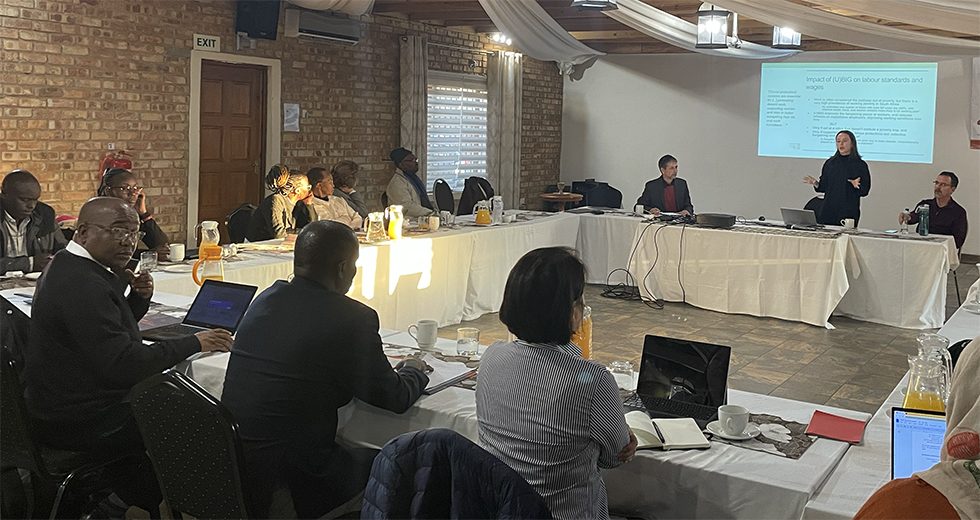GRAPE campaigns come into focus
Posted on June 16, 2023 by Phil Tanis

The two pilot projects of the Global Reformed Advocacy Platforms for Engagement (GRAPE) programme of the World Communion of Reformed Churches (WCRC) took firmer shape at a meeting in South Africa.
On Thursday, 25 May, at 8:30 a.m., the GRAPE participants from Kenya and South Africa found themselves meeting in a dark and chilly conference room in Johannesburg. The lights had just gone out because South Africa has an electricity crisis; load shedding a regular occurrence, which often means no electricity for eight to ten hours a day.
The conference centre had a diesel generator and gas heaters, an individual, albeit expensive and not always reliable solution for a systemic crisis. Until the diesel generator started working, those gathered had an inspiring and warming morning devotion about the theology from the margins with lively songs which warmed their bodies and stimulated their minds.
This was symbolic of the GRAPE programme, which seeks to find practical solutions based on the engagement of churches and partners for the systemic problems of social and economic injustice and the effects of climate breakdown.
The GRAPE Steering Committee along with WCRC executive secretaries Muna Nassar and Hanns Lessing, EPRI course convenors Claudia and Dirk Haarmann, and South African and Kenyan church leaders had come together for two days to evaluate the progress of the GRAPE programme.
Over the last six months, the GRAPE teams in Kenya and South Africa had, with the support of the Economic Policy Research Institute (EPRI), developed advocacy campaigns for the two countries. They shared these details to both the WCRC Executive Committee, meeting in the same venue 20-24 May, and to each other, including analyses of the current situation in the countries and their foci and plans for their advocacy campaigns.
In Kenya, given the dramatic drought and dire water situation caused by the climate crisis, the team wants to work with their government and various national and global stakeholders to ensure that by 2028 each person in Kenya is guaranteed 50 litres of clean and safe drinking water or equivalent cash compensation. Since Kenya is not responsible for the climate breakdown, there is a case to be made for the country to receive financial support from global climate justice, adaptation, and mitigation programmes which can support the achievement of this goal.
In South Africa, given the extreme income inequality, prevailing poverty, and unemployment, the team wants to join forces with the national campaign for the introduction of a universal basic income grant (UBIG) of at least R663 per person monthly to all individuals between the ages of 18 and 59 by 2028. Already during the meeting in Johannesburg, two active actors in the campaign, the Economic Justice Institute (EJI) and the “PayTheGrant,” gave presentations and input into the concept and campaign in South Africa. The networking with other actors, so vital for advocacy campaigns, started already then and there.
The steering committee members and church leaders, together with the GRAPE team members and EPRI, then mapped out the way forward on how the churches can take concrete steps to engage in these advocacy campaigns; this included planning a timeline for informing their relevant structures, translating information material for congregations into local languages, and strategizing for public events. The next months will further set the stage for the churches to become owners and agents of the advocacy campaigns.
GRAPE is a WCRC project that seeks to address the enormity and complexity of the unjust economic situation coupled with the climate crisis by growing networks of advocates in church and civil society. It is made possible with support from Brot für die Welt and Otto per Mille.
 World Communion of Reformed Churches
World Communion of Reformed Churches